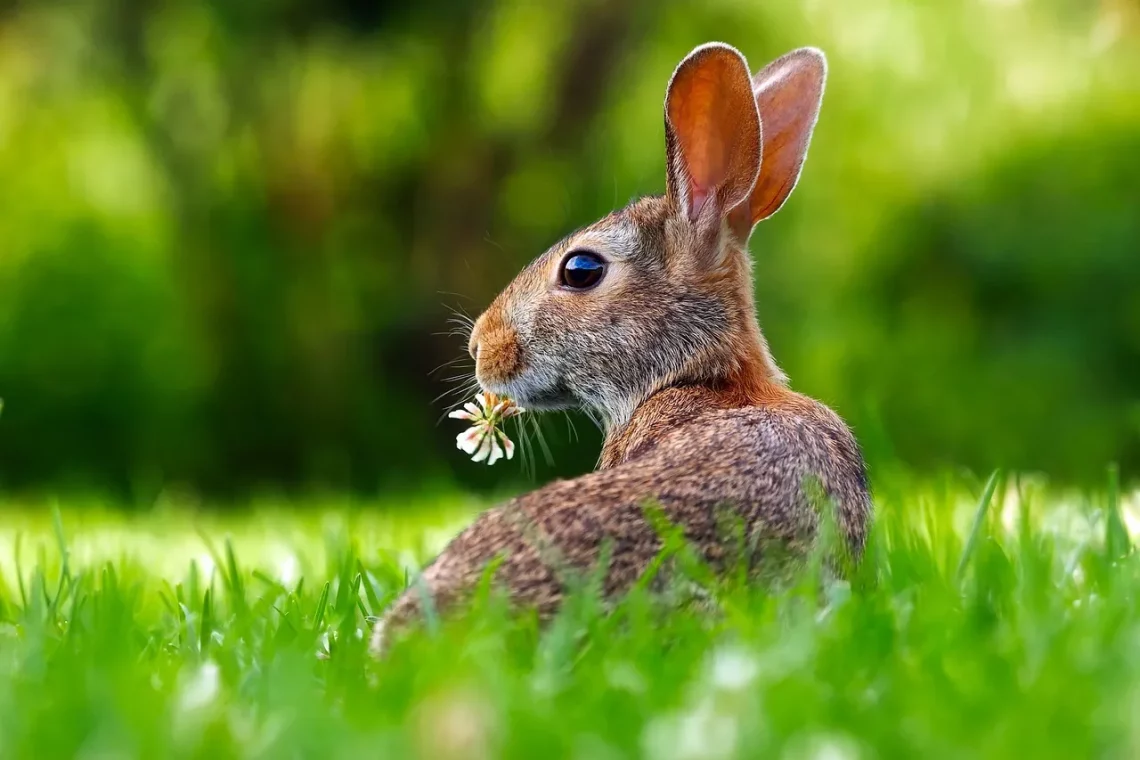
Do Rabbits Sleep? Understanding Their Unique Sleep Patterns
Rabbits are fascinating creatures that have captured the hearts of many pet owners and wildlife enthusiasts alike. Their unique behaviors, social structures, and even their sleeping habits provide insight into their complex lives. Understanding how rabbits sleep is essential for anyone considering them as pets, as it can greatly affect their health and well-being. Unlike humans, rabbits have distinct sleep patterns that reflect their natural instincts and evolutionary adaptations. This article delves into the intricacies of rabbit sleep, highlighting the differences between their sleep cycles and those of other animals.
The nocturnal and crepuscular nature of rabbits, combined with their prey status in the wild, influences their sleep behavior. When observing rabbits, one can appreciate how their sleep is intertwined with their survival instincts. Furthermore, the environment in which they sleep plays a crucial role in their overall comfort and security. As we explore this topic, we will uncover the various aspects of rabbit sleep, helping current and prospective rabbit owners create optimal living conditions for their furry companions.
Understanding Rabbit Sleep Cycles
Rabbits exhibit unique sleep cycles that are markedly different from those of humans and many other domesticated animals. Their sleeping habits are influenced by their evolutionary background as prey animals. In the wild, rabbits are constantly alert to potential threats. Consequently, their sleep patterns are characterized by short periods of deep sleep interspersed with frequent awakenings.
Typically, rabbits sleep for about 8 to 10 hours a day, but this sleep is not continuous. Instead, it is broken up into short intervals, allowing them to remain vigilant. During these sleep phases, rabbits often enter a state known as REM (Rapid Eye Movement) sleep, which is crucial for their overall health and well-being. In this state, they may twitch their noses and paws, reflecting their active dreaming process.
Moreover, rabbits are crepuscular animals, meaning they are most active during dawn and dusk. This behavior is a survival mechanism that allows them to forage for food while avoiding predators that are more active during the day. As a result, their sleep patterns are adapted to align with these peak activity times. When caring for a pet rabbit, it’s essential to recognize these natural habits to provide an environment that allows for adequate rest during the day.
Rabbits often prefer to sleep in a safe, cozy spot where they feel secure. A well-designed hideaway or a quiet corner in their enclosure can encourage restful sleep. Pet owners should be mindful of their rabbit’s sleeping habits and avoid interrupting them, as disturbed sleep can lead to stress and health issues.
The Importance of Sleep for Rabbit Health
Sleep plays a vital role in the overall health of rabbits. Just like humans and other animals, rabbits require sufficient sleep for proper physiological and psychological functioning. During sleep, rabbits experience various restorative processes that help maintain their health.
One of the primary benefits of sleep for rabbits is its role in maintaining a healthy immune system. Adequate sleep supports the body’s ability to fend off diseases and infections. Additionally, sleep is crucial for the development and maintenance of their muscles and tissues. When rabbits do not receive enough rest, they may become more susceptible to illness and injury, leading to a decline in their overall well-being.
Furthermore, sleep deprivation can significantly impact a rabbit’s behavior. A tired rabbit may exhibit signs of irritability, aggression, or lethargy. These behavioral changes can lead to a strained relationship between the rabbit and its owner, resulting in a less enjoyable companionship. Therefore, ensuring that a pet rabbit has a comfortable and secure sleeping environment is critical for its mental health.
It’s essential to recognize the signs of stress or discomfort in pet rabbits, as these can directly affect their sleep quality. Factors such as loud noises, frequent handling, or an unsuitable living environment can lead to disrupted sleep patterns. Pet owners should strive to create a peaceful atmosphere in their rabbits’ living space, promoting relaxation and restful sleep.
Creating a Comfortable Sleeping Environment
To ensure that your rabbit gets the quality sleep it needs, it’s crucial to provide a comfortable sleeping environment. This involves several factors, including the choice of bedding, the enclosure setup, and the overall atmosphere of their living space.
First and foremost, selecting the right bedding material is essential. Soft, absorbent bedding allows for a comfortable resting place. Many rabbit owners opt for paper-based bedding or hay, as these materials are safe and provide a cozy surface for their pets. Avoid using cedar or pine shavings, as these can be harmful to rabbits due to their strong aromatic compounds.
The enclosure setup also plays a significant role in a rabbit’s sleeping habits. It should be spacious enough for the rabbit to stretch out comfortably. Providing hiding spots or tunnels can help rabbits feel secure, as they are inherently prey animals. A designated sleeping area within their enclosure can encourage them to rest without feeling exposed.
Additionally, the overall atmosphere of the rabbit’s living space is vital. Keeping the environment quiet and free from disturbances is essential for encouraging restful sleep. If possible, place the enclosure in a low-traffic area of your home where loud noises and sudden movements can be minimized.
Lighting can also affect your rabbit’s sleep patterns. Natural light cycles help regulate their circadian rhythms, so consider positioning their enclosure near a window where they can experience natural light during the day. However, ensure that they have a dark, quiet area available for sleeping.
Common Misconceptions About Rabbit Sleep
There are several misconceptions about rabbit sleep that can lead to misunderstandings about their care. One common myth is that rabbits sleep like humans, with long, uninterrupted periods of rest. In reality, rabbits have polyphasic sleep patterns, which means they have multiple sleep phases throughout the day.
Another misconception is that rabbits do not require as much sleep as other pets. While their sleep patterns may differ, they still need adequate rest to maintain their health and well-being. Ignoring their need for sleep can lead to stress and behavioral issues, which can negatively impact their bond with their owners.
Some people also believe that rabbits can sleep anywhere, but this is not true. Rabbits prefer secure, cozy spaces where they feel safe. If a rabbit does not have a suitable place to sleep, it may become anxious, leading to disrupted sleep patterns.
Finally, there’s a belief that rabbits are low-maintenance pets regarding their sleeping needs. While they may not require as much attention as some other animals, it is crucial to be mindful of their unique needs. Understanding their sleep behaviors and creating an environment that caters to these needs is essential for responsible rabbit ownership.
In conclusion, rabbits are remarkable creatures with unique sleeping habits that reflect their evolutionary adaptations. Understanding their sleep patterns is vital for ensuring their health and happiness. By creating a comfortable sleeping environment and recognizing their need for adequate rest, rabbit owners can foster a strong, positive relationship with their furry companions.
**Disclaimer:** This article is for informational purposes only and does not constitute medical advice. Always consult with a qualified veterinarian for any health concerns regarding your pet.




